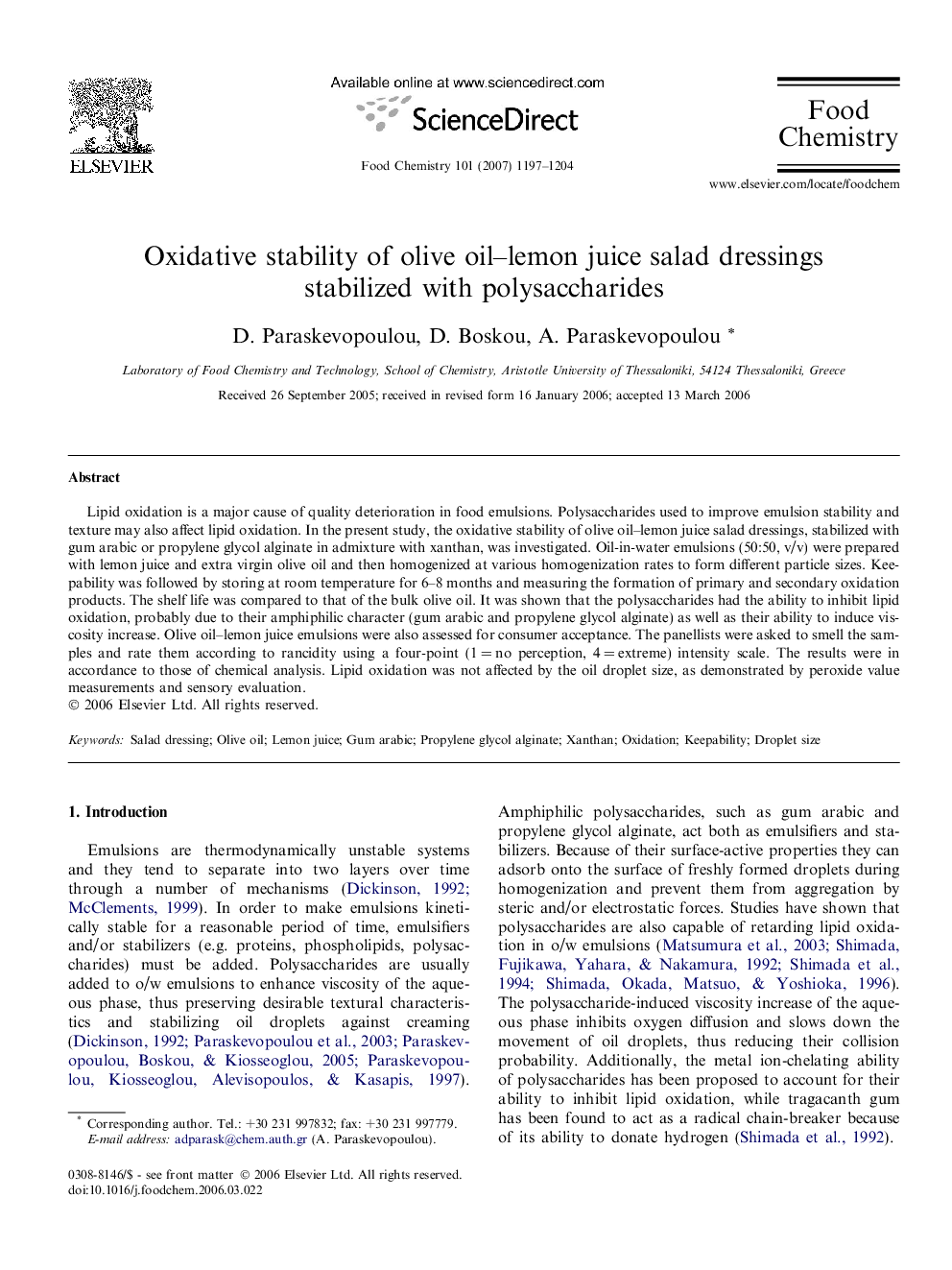| Article ID | Journal | Published Year | Pages | File Type |
|---|---|---|---|---|
| 1191847 | Food Chemistry | 2007 | 8 Pages |
Lipid oxidation is a major cause of quality deterioration in food emulsions. Polysaccharides used to improve emulsion stability and texture may also affect lipid oxidation. In the present study, the oxidative stability of olive oil–lemon juice salad dressings, stabilized with gum arabic or propylene glycol alginate in admixture with xanthan, was investigated. Oil-in-water emulsions (50:50, v/v) were prepared with lemon juice and extra virgin olive oil and then homogenized at various homogenization rates to form different particle sizes. Keepability was followed by storing at room temperature for 6–8 months and measuring the formation of primary and secondary oxidation products. The shelf life was compared to that of the bulk olive oil. It was shown that the polysaccharides had the ability to inhibit lipid oxidation, probably due to their amphiphilic character (gum arabic and propylene glycol alginate) as well as their ability to induce viscosity increase. Olive oil–lemon juice emulsions were also assessed for consumer acceptance. The panellists were asked to smell the samples and rate them according to rancidity using a four-point (1 = no perception, 4 = extreme) intensity scale. The results were in accordance to those of chemical analysis. Lipid oxidation was not affected by the oil droplet size, as demonstrated by peroxide value measurements and sensory evaluation.
